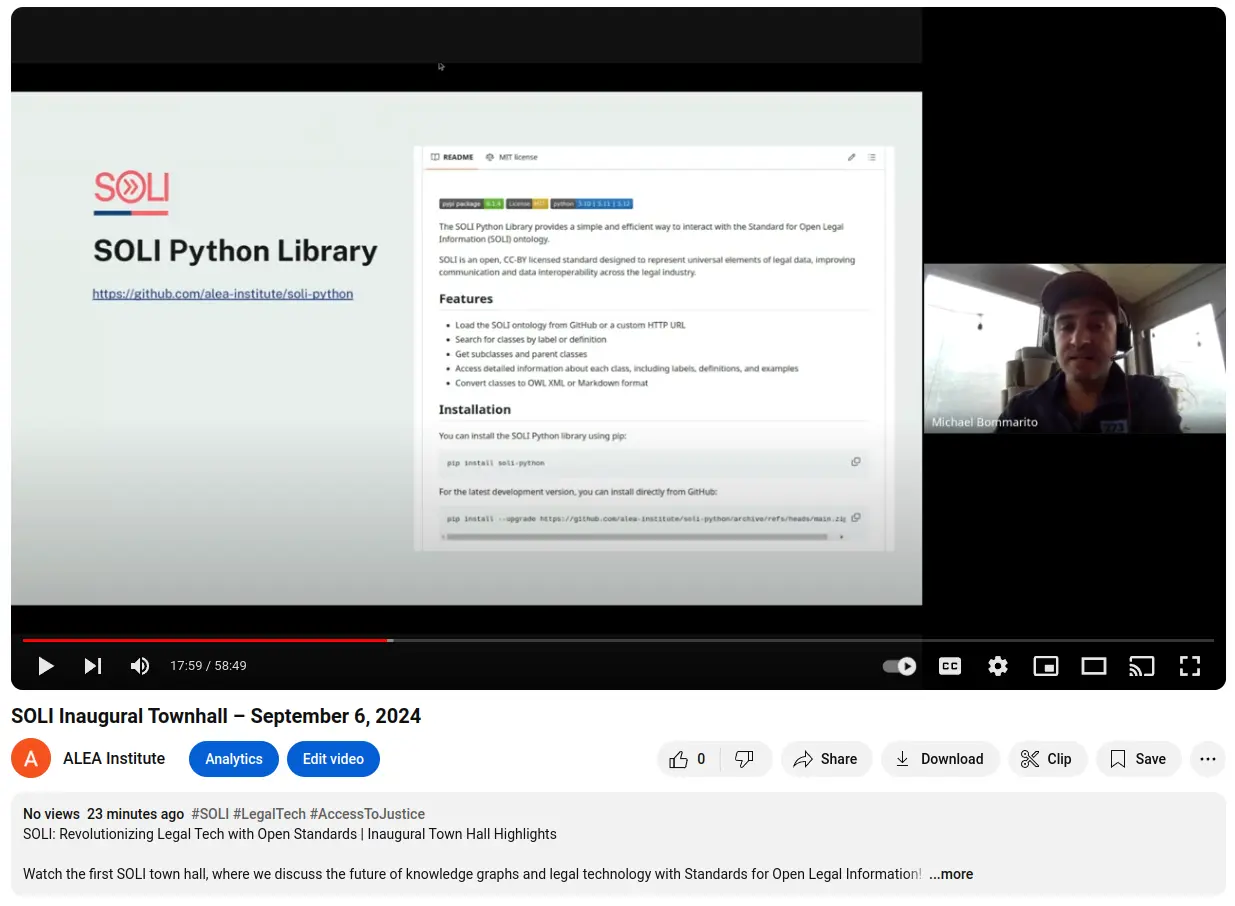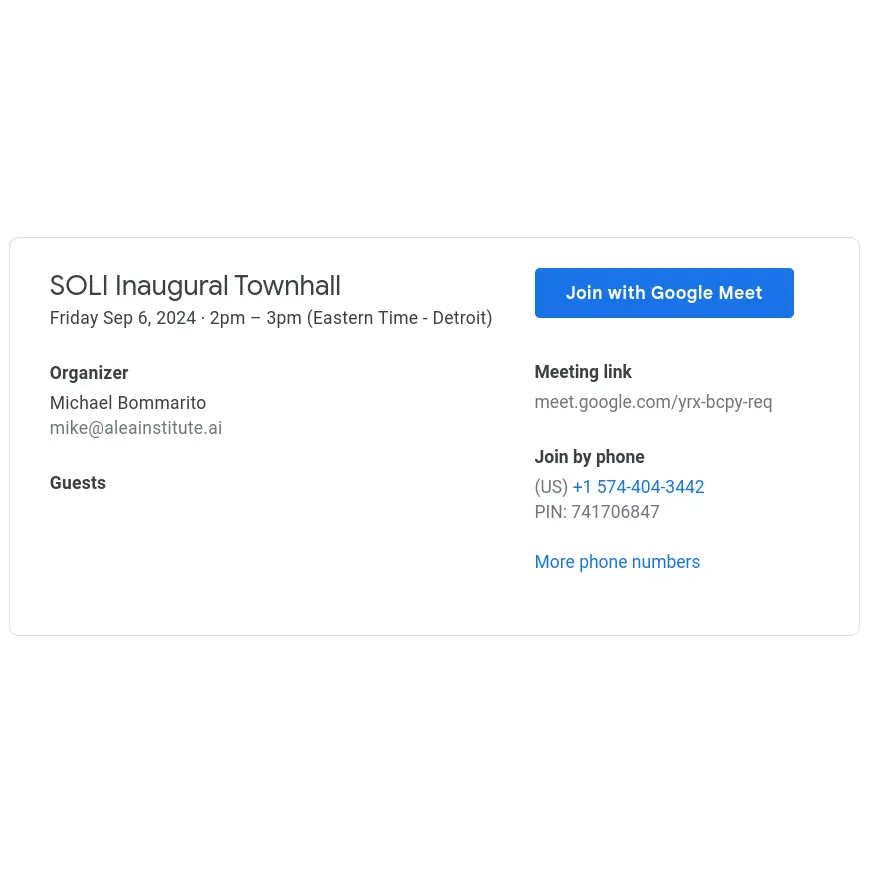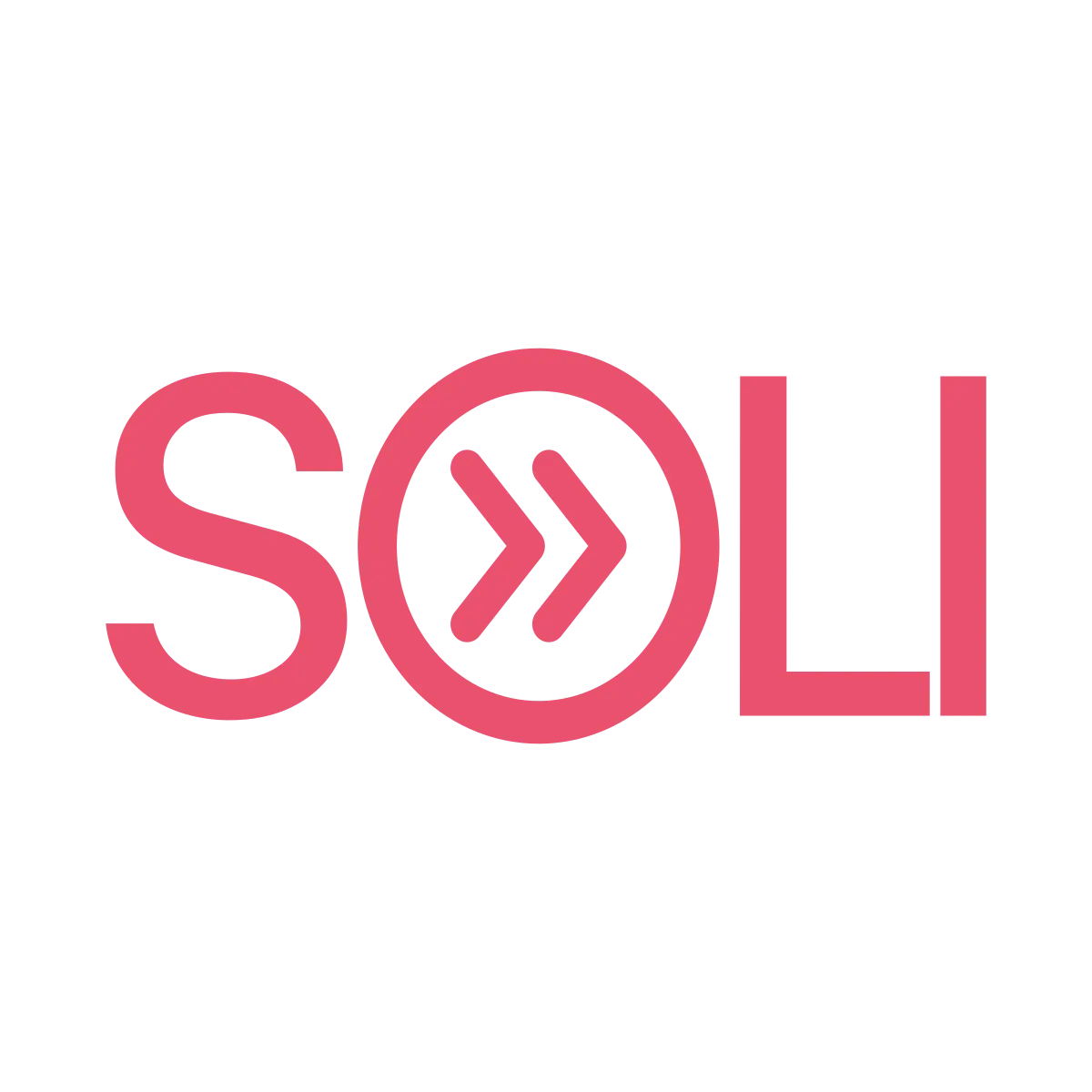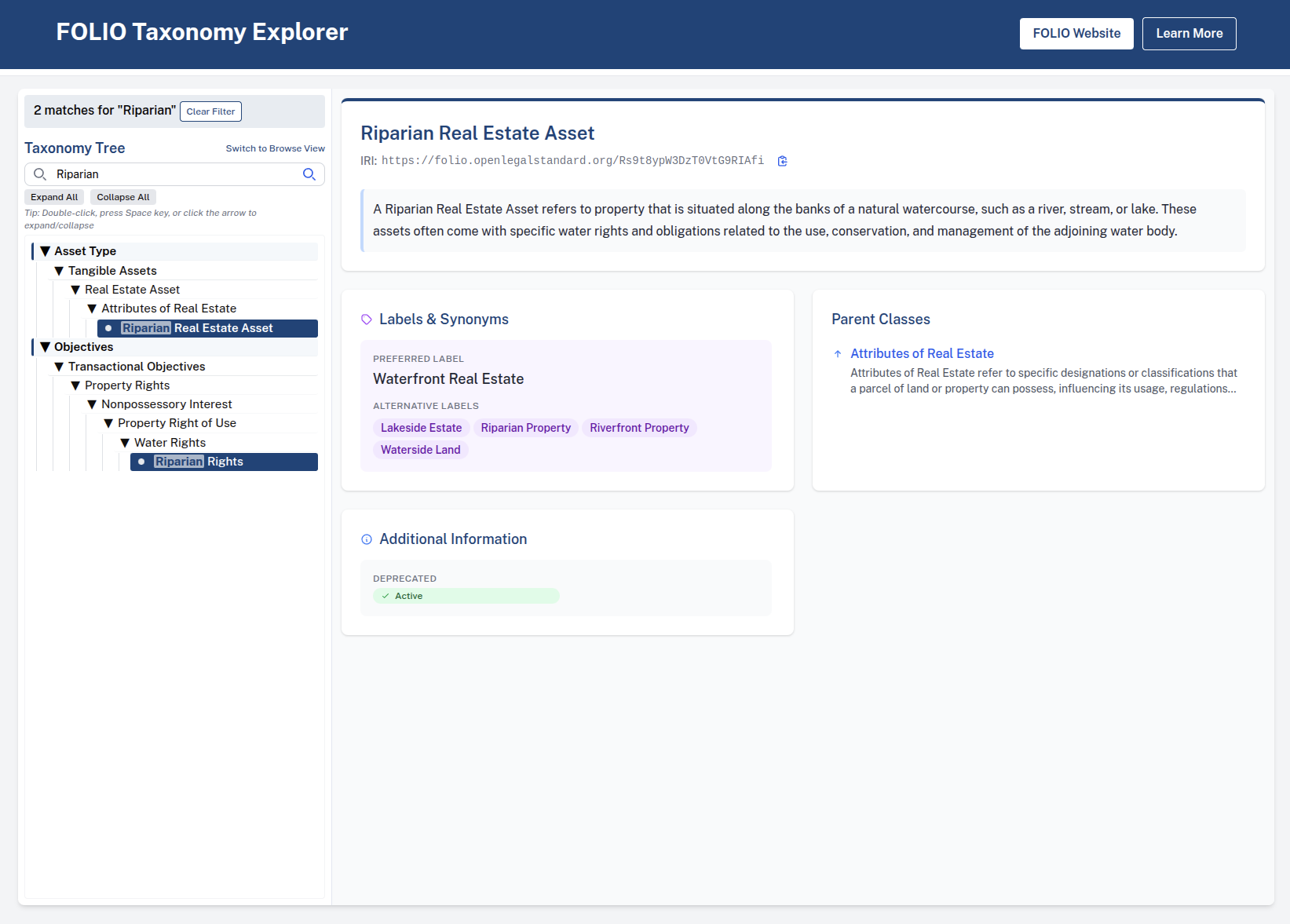· event · 3 min read
FOLIO Inaugural Town Hall: Charting an Open Future for Legal Ontologies
On September 6, 2024, 20 legal tech pioneers gathered to discuss the future of FOLIO and its potential to revolutionize legal information.

A Landmark Gathering for Legal Technology
On September 6, 2024, the FOLIO (Federated Open Legal Information Ontology) project held its inaugural town hall meeting, bringing together 20 visionaries from the legal technology community. This virtual gathering sparked an hour-long discussion about the future of legal ontologies, taxonomies, and their potential to transform both public and private legal technology systems.
The town hall saw active participation from a diverse group of attendees, including:
- Legal technology experts
- Ontology specialists
- Representatives from law firms and legal service providers
- Academic researchers
Michael Bommarito, leading the FOLIO project under the ALEA Institute, and Damien Riehl, world-renowned legal tech advocate, facilitated the meeting.
Groundbreaking Announcements
The FOLIO team unveiled a suite of innovative tools and initiatives:
FOLIO Python Library and API: A convenient, backward-compatible library for developers to use either the FOLIO ontology or legacy LMSS resources.
“This open API is fully typed and provides a wealth of convenience functions, making it easier than ever to work with our ontology.”
Data Generator Library: A tool for creating synthetic legal data, opening new frontiers in AI training.
“This library allows us to leverage our ontological items to create rich, diverse datasets for a wide range of applications.”
Enhanced Search Functionality: Improved ontology search capabilities as requested by the community.
Evolving the Ontology and Related Resources
The discussion focused on enhancing FOLIO’s structure and usability, including, for example:
- Single Parentage Option: Tackling complexity in the current structure
- Contract Ontology Enhancement: A nuanced approach to real-world contracts
- UI/UX Improvements: Innovative navigation for deep hierarchies
- Tools for Legal Annotation: Streamlining the annotation process, including classification and span-level annotation
Community-Driven Use Cases and UX Patterns
A key outcome was the recognition of the need to collect and analyze diverse use cases and UX patterns from the community. Michael Bommarito emphasized this approach:
“We’re committed to slowing down and really thinking about the key UX patterns and AI use cases. By putting these model use cases at the forefront, we ensure that our development truly meets the needs of our community.”
This initiative will involve:
- Collecting detailed use cases from across the legal tech spectrum
- Analyzing effective UX patterns for complex legal taxonomies or ontologies
- Mapping ontology features to real-world needs, possibly through multiple deliverable types
- Prioritizing development based on community input
- Establishing a continuous feedback loop
Sam Grange highlighted the collaborative potential:
“We’re bringing together law firms to identify core knowledge management needs. There’s no point in creating parallel standards - we should work together to create something truly transformative.”
Access to Justice: A Core Mission
A crucial theme that emerged was FOLIO’s potential to improve access to justice. Damien Riehl highlighted the urgency of this issue:
“With 92% of legal needs in the United States unmet due to cost barriers, we’re at a critical juncture. We’re working with bar associations to create AI sandboxes that allow organizations to use large language models to help underserved populations access justice, without fear of unauthorized practice of law prosecution.”
This initiative opens up exciting possibilities for using FOLIO and AI to address the access to justice gap, potentially revolutionizing legal services for underserved populations.
The Road Ahead
Our ambitious roadmap includes:
- Refining the taxonomy structure
- Enhancing the contract ontology
- Developing advanced annotation tools
- Expanding strategic partnerships
- Innovating for improved access to justice
- Refining AI models for legal applications
- Enhancing data generation capabilities
- Implementing community feedback processes
Join the FOLIO community!
We invite all stakeholders to get involved:
- Explore our new Python library
- Explore our new free API
- Experiment with the data generator library
- Join the discussions
Together, we can build a more accessible, efficient, and just legal system for all.
Resources:


